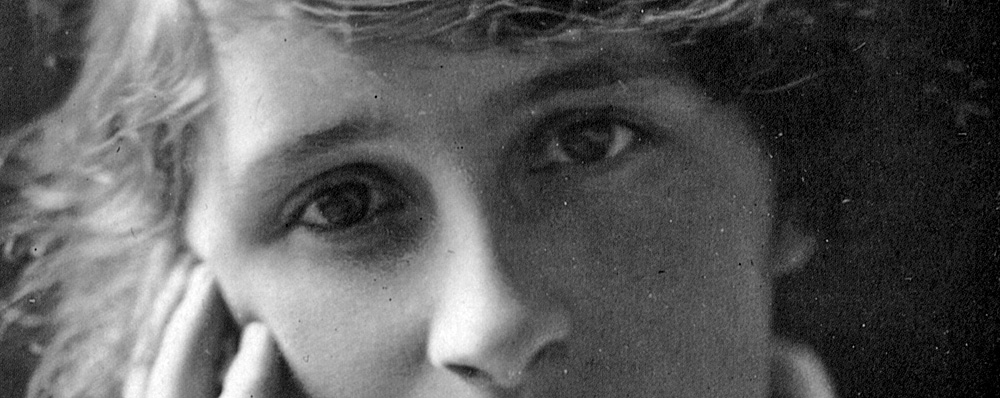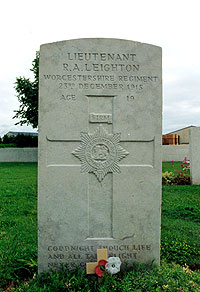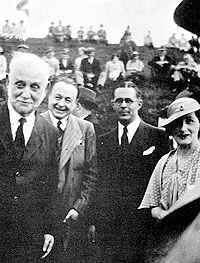|
|||
| BACK |

VERA BRITTAIN Vera Brittain is best known for her book ‘Testament of Youth’, in which she tells the story of her harrowing experiences in the First World War. It was then that she realised that war wasn’t the glorious adventure many young men thought it to be., Afterwards she became strongly - and famously - associated with the peace movement, to which she was committed for the rest of her life. Vera Brittain was born in 1893 to a family with a comfortable income and middle-class attitudes. Home life oppressed Vera profoundly, and she was a rebel from the start. ‘The disadvantages of being a woman have eaten like iron into my soul.’ She had quickly realised that being female was a handicap in those days, and she struggled for recognition as an individual and independent person with the right to have a career. She deeply envied her much-loved younger brother, Edward, who could leave home without having to get married to do it. 1913 was a significant year for Vera. A series of lucky chances led to her being accepted to study at Somerville College Oxford (an idea her father at first rejected entirely, as being an unsuitable step for a girl). She also met her brother Edward’s school friend Roland Leighton, and they fell in love. All three were going to study in Oxford: the future looked bright. But in 1914 everything changed. War was something new and unsettling for Vera to understand. In the only way she knew then, she responded to the sense of crisis it created. Conditioned to the traditional public school view that a soldier’s life was a manly and heroic one, she urged her brother to enlist - once again in direct conflict with her father. She was still ignorant of the power and techniques of propaganda: to her, the cleverly-designed recruiting advertisements were honourable and sincere. War, in short, was part of the man’s world from which Vera felt unfairly excluded, a world in which one bravely went to battle when it seemed necessary and honourable to do so. As she said later, she was ‘carried away by the wartime emotion and deceived by the shining figure of patriotism’. But three weeks after the war began, she was already writing this: ‘It was very hard to believe that not far away men were being slain ruthlessly.... The destruction of men, as though beasts, whether they be English, French, German or anything else, seems a crime to the whole march of civilisation.’ She was starting to understand what war really means. ‘Testament of Youth’ tells the story: how she left Oxford to train as a nursing auxiliary, how she went on to nurse wounded soldiers in England, Malta and France, and how one by one the friends she cared most about were killed, including her fiancé Roland and, in 1918, her brother Edward. In France, the suffering men in her care were German prisoners-of-war, and here she recognised a tragic and terrible absurdity: she was working hard to save lives, while her brother had been trying to destroy them. Vera now saw that there was nothing ‘holy’ or ‘just’ about war; and she never forgot what she had learned from it. She said later that her pacifism was ‘rooted in my experience of war’. ‘Testament of Youth’, was published in 1933. In that year Vera went to France and visited the First World War battlefields and the cemetery where her fiancé was buried. (Her brother Edward was buried where he was killed, in Italy.) In Thiepval she stood beside the British memorial to 73,367 men who had died in the battle of the Somme and whose bodies had never even been found. This, she bitterly understood, was one of the horrifying results of ‘my generation’s pursuit of heroism’. Some of the 73,000 names of men killed in the battles of the Somme who's bodies have not been found. After 1918 Vera put her hopes for a peaceful future in the League of Nations (later to become the United Nations): for a while she still believed that armed force could be justified as a last resort to maintain ‘collective security’. But she grew disenchanted as the years passed and no real international commitment to lasting world peace seemed to exist, nor any determined and imaginative pursuit of it even by its promoters. In 1934 she wrote an article calling for a ‘real peace crusade’ with banners and slogans, and an end to ‘perpetual pamphlets and the dreary droning of tired voices in somnolent lecture halls’. 1936 was the year in which, with the threat of another war, the peace movement divided into those who supported ‘peace but not at all costs’, and those who rejected war absolutely. Many of these ‘absolutists’ became members of the Peace Pledge Union, which had just been founded. In April, on another visit to Europe, Vera chanced to encounter a ‘Pilgrimage of Peace’ organised by a group of French pacifists: 1,600 men and women were affirming an Oath of Peace in Verdun Cathedral. In June she was a guest speaker at a Peace Rally in Dorset, where on impulse she abandoned her prepared speech and talked instead about her experience in Verdun. On the train back to London she talked with Dick Sheppard, the PPU’s founder, and ‘found myself more and more sympathetic with the complete pacifist outlook’. By January 1937 she was a PPU member, and remained an active supporter for the rest of her life. People have been drawn to pacifism for many reasons. For Vera, it was her belief that the best rule for human behaviour, either as individuals or as groups and nations, was ‘Treat people as you would like them to treat you’. She was a realist: she knew that world peace was an ideal that would be difficult to reach, at least quickly. As long as war is possible, she said, ‘righteous reasons will be found for it’. But that did not mean that the ideal should be abandoned; on the contrary, it was vital to keep it in people’s minds. This is why Vera became a public speaker for peace - and she was a popular speaker, who expressed her views clearly and simply, and whom people came specially to hear. No ‘dreary droning’ to half-asleep audiences when Vera was on the platform. Her listeners heard her views on other matters close to her heart, too. She had recognised that oppression and injustice of all kinds were the breeding-grounds of war. She said ‘the struggle against war, which is the final and most vicious expression of force, is fundamentally inseparable from feminism’; she also saw, and said, that the anti-war struggle was linked to ideals of democracy and socialism, and to the abolition of slavery, tyranny, colonisation and racism throughout the world. Vera Brittain was the sort of person who acted on her principles as well as talking about them. By 1938 she was publicly protesting against the treatment of Jews in Germany and finding ways to help refugees escape to Britain. When the Second World War began she gave up time and energy to help people whose homes had been bombed. She worked very hard for the PPU’s food relief campaign, set up to help the starving peoples of occupied Europe. This was a project that proved controversial, as some people believed that such aid would make the war last longer, and others thought it would help ‘the enemy’. But Vera saw this work as a practical way of being a pacifist: helping to ease the suffering caused by war. Above all, she believed that people should know the truth about what was happening. From 1940 to 1946, she produced her fortnightly ‘Letter to Peace-lovers’, which gained 2,000 subscribers (some of them in the armed forces) and provided them with all the reliable information she could obtain. The government acknowledged that Vera Brittain’s ‘Letters’ were one of the most successful anti-war publications - and she was blacklisted and restricted from travel as a result. (This meant that she couldn’t visit her much-missed children in America.) Vera spent most of the war in London, enduring like everyone else the disruption, food shortages, air raids, exhaustion, anxiety, and lack of sleep. She also visited PPU groups around the country, especially those in devastated cities such as Coventry and Plymouth. Perhaps her experiences of bombing gave her even more inspiration as she embarked on her most famous, and most controversial, campaign. This was against ‘saturation bombing’: the wholesale bombardment of German cities in order to destroy them, civilian populations and all, as a way of forcing the Nazi government to give in. Vera was an active member of the Bombing Restriction Committee, set up in 1942, the year in which RAF fighting policy was changed from ‘precision bombing’ to ‘area bombing’. In one of her Letters, Vera said the British should decide whether ‘we want the government to continue to carry out, through its Bomber Command, a policy of murder and massacre’ in our name. Has any nation the right to make its young men the instruments of such a policy?’ In 1944 she published her book ‘Seed of Chaos: What Mass Bombing Really Means’, in which she provided eye-witness reports of its effects. She vividly pressed home her argument: there was no evidence that the war would be shortened by such destruction - in fact its victims were more likely to want revenge. In any case, if the military intention was to limit slaughter and destruction by bringing the war to a quick end, it was senseless and illogical to try to do it by adding yet more slaughter and destruction to the already horrifying toll The response to ‘Seed of Chaos’ in Britain and America was immediate: Vera became the focus of a rising tide of anger and abuse. With characteristic spirit she said: ‘when people abuse you and defend themselves, you know you have got under their skin and uncovered a bad conscience!’ But as pacifists have discovered throughout their history, their views may also be heard and praised, and sometimes by unlikely listeners. One military expert wrote to Vera to tell her of his ‘profound respect for your courage in upholding claims for human decency in a time when war fever is raging’. Her work did not end with the war. Vera was one of the first people to point out publicly that it was unjust for the whole German nation to be collectively punished for Nazism: after all, many German non-Jews had protested against the regime and had also been sent to the concentration- and death-camps. She also showed how the Nazis’ worst crimes against humanity had actually been made possible by the war. (It was discovered that Vera, too, had been unpopular with the Nazis - whom her abusers had accused her and other pacifists of supporting. Her name had been entered in the Gestapo’s ‘Black Book’, which listed 2,820 people to be arrested at once if Britain was successfully invaded. Pacifism was seen by the Nazis as a very real threat. Vera continued to work for the PPU, and was its chairperson from 1948 until 1951. At this point (she was now approaching 60) she felt she had done all she could for ‘organised’ peace work. Now, with ‘the same principles but different approaches’ she wanted to return single-mindedly to writing. Her ‘Testament of Experience’, describing her life - and her work for peace - was published in 1957. She also continued to write articles about major issues, and she was a regular contributor to ‘Peace News’, the magazine founded by the PPU. She wrote in support of such ideas and projects as the Campaign for Nuclear Disarmament; independence for colonised countries; the anti-apartheid movement in South Africa (‘Peace News’ was banned in South Africa as a result); and political nonviolent protest as taught by Gandhi in India. After a fall in 1966 Vera was never really well again, and in 1970 she died. A memorial service was held for her at St Martin-in-the-Fields, crowded with family, friends, and people from all the organisations she had worked with and for. Her daughter said that when Vera died ‘she believed that as a writer she had been forgotten, the fading voice of a dying generation’. But in less than ten years Vera Brittain’s work, and her courageous personality, were being rediscovered. ‘Testament of Youth’ was made into a hugely popular television drama series, and hasn’t been out of print since. Indeed, it is now on school and college reading lists everywhere. Vera would be delighted, not only because her book is so appreciated, but also because it’s one of the growing number of recommended books which warn us all against the grief and horrors of war. |
'It was very hard to believe that not far away men were being slain ruthlessly.... The destruction of men, as though beasts, whether they be English, French, German or anything else, seems a crime to the whole march of civilisation.’
Read: Vera Brittain- women and peace
Roland Leighton's grave in Louvencourt, France
George Lansbury, Dick Sheppard, Donald Soper and Vera Brittain at the Peace rally in Dorchester.
|
|
Peace Pledge Union, 1 Peace Passage, London N7 0BT. Tel +44 (0)20 7424 9444 contact | where to find us |



